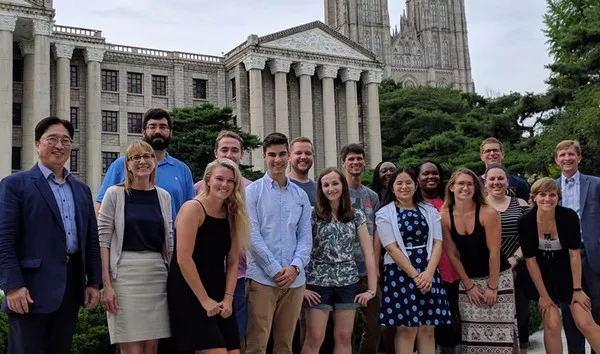Because studying abroad is too expensive, and many students’ families are not financially able to support the cost of studying abroad, but they want to go abroad, so how to do?
In fact, domestic students can apply for loans, so how to apply?
Today, I will introduce the content about studying abroad loans. If you are interested in this topic, please click here.
The RMB loan for studying abroad is a RMB loan issued by the Bank of China to the borrower for the deposit, tuition and living expenses (including travel expenses) required by the educated person to study overseas for preparatory, university or master’s or doctoral degree.
It can be divided into the loan for studying abroad margin before obtaining the visa and the loan for studying abroad education after obtaining the visa. Among them, the loan for studying abroad margin is the loan for the money required by the educated person for studying abroad margin.
Loan Limit and Loan Term Loan limit: In principle, the loan limit shall not exceed 80% of the total tuition and miscellaneous expenses and living expenses required by the educated person during the period of studying in the university.
The minimum is 10,000 yuan, not more than 500,000 yuan.
Term of loan: generally one to six years and no more than ten years (including ten years) Loan Interest rate: The interest rate for loans of the same grade stipulated by the People’s Bank of China shall apply.
If the term is within one year (including one year), interest shall be calculated at the contract interest rate, which shall remain unchanged in case of any adjustment of the statutory interest rate;
The term is over one year and the interest rate is fixed for one year. In case of any adjustment of the statutory interest rate, the interest rate adjusted by the People’s Bank of China shall be applied on the next fixing date.
For the overdue part of the loan and the extension is not approved, the interest shall be charged at the interest rate set by the People’s Bank of China.
Fill in the Application Form for Education Loan;
The ID card, household register, graduation certificate of the borrower and the educated person and the photocopy of the certificate for filing by the lender;
Proof of the relationship between the borrower and the person receiving education;
Certificate of tuition and living expenses for the period of study issued by the overseas school;
Proof of 20% of the funds raised by the borrower (certificate of deposit);
Guaranty letter issued by the guarantor and the guarantor’s ID card, household register and income certificate.
The applicant’s passport and embassy visa, and provide copies for the lender’s filing;
The admission notice issued by the school where the educated person is studying abroad;
The borrower shall provide one or more of the following supporting materials: 1. Income certificate provided by the personnel or labor department of the employer; 2.
2. Certificates of deposit or certificates of deposit or Treasury bonds;
3. Proof of other assets under the name of the individual;
4. Proof of other income.
1. The applicant should fill in the loan application form and submit the prepared materials to the bank.
2. If approved, the bank will inform the borrower of the agreed loan amount, term and interest rate.
3. If the borrower signs a loan contract with the bank, if the borrower is the person studying abroad, his domestic agent shall sign the contract at the same time.
4. The Borrower shall handle the guarantee procedures with the bank and sign the guarantee contract. If the guarantor is adopted, the natural person or legal person representative of the guarantor shall be present and sign the guarantee contract.
5. If required by the bank, notarization shall be performed.
6. Loan issuance.
In addition to renminbi loans, many banks also have foreign exchange loans. For example, to study in the United States, foreign exchange loans can be issued directly in dollars, eliminating the trouble of exchange, but repayment also needs to use foreign currency.
At present, banks generally adopt the one-stop financial service model. Parents and children can choose the most suitable bank first, not only for loans, but also to enjoy one-stop services such as credit certificate, currency exchange, overseas credit card, etc. For example, parents can apply for credit cards in China and let their children hold a secondary card abroad.




















